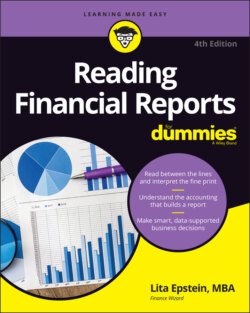Читать книгу Reading Financial Reports For Dummies - Lita Epstein - Страница 65
Teaming up with an investment banker
ОглавлениеThe first step after a company decides to go public is to choose who will handle the sales and which market to sell the stock on. Few firms have the capacity to approach the public stock markets on their own. Instead, they hire an investment banker to help them through the complicated process of going public. A well-known investment banker can lend credibility to a little-known small company, which makes selling the stock easier.
Investment bankers help a company in the following ways:
They prepare the required SEC documents and register the new stock offering with the SEC. These documents must include information about the company (its products, services, and markets) and its officers and directors. Additionally, they must include information about the risks the firm faces, how the business plans to use the money raised, any outstanding legal problems, holdings of company insiders, and, of course, audited financial statements.
They price the stock so it's attractive to potential investors. If the stock is priced too high, the offering could fall flat on its face, with few shares sold. If the stock is priced too low, the company could miss out on potential cash that investors, who buy IPO shares, can get as a windfall from quickly turning around and selling the stock at a profit.
They negotiate the price at which the stock is offered to the general public and the guarantees they give to the company owners for selling the stock. An investment banker can give an underwriting guarantee, which guarantees the amount of money that will be raised. In this scenario, the banker buys the stock from the company and then resells it to the public. Usually, an investment banker puts together a syndicate of investment bankers who help find buyers for the stock.Another method that's sometimes used is called a best efforts agreement. In this scenario, the investment banker tries to sell the stock but doesn't guarantee the number of shares that will sell.
They decide which stock exchange to list the stock on. The New York Stock Exchange (NYSE) has the highest level of requirements. If a company wants to list on this exchange, it must have a pretax income of at least $10 million over the last three years and 2,200 or more shareholders. The NASDAQ has lower requirements. Companies can also sell stock over the counter, which means the stock isn't listed on any exchange, so selling the stock both as an IPO and after the IPO is much harder.
